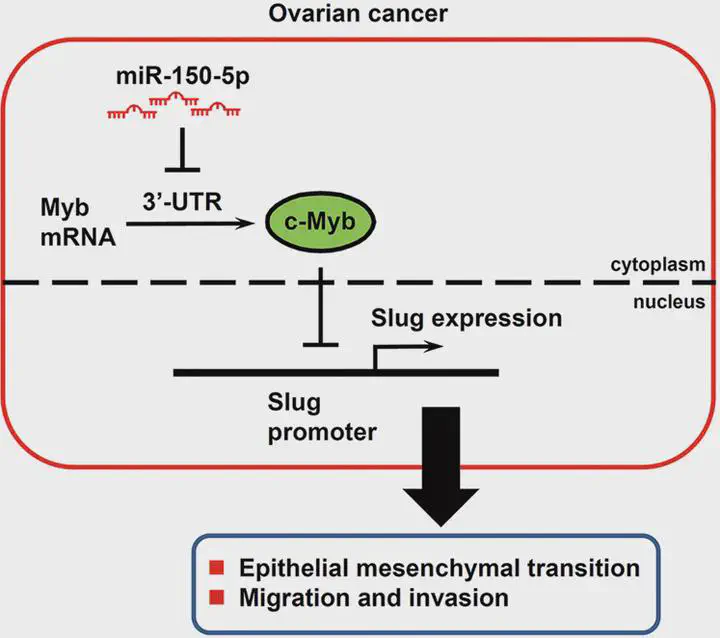MicroRNA-150-5p promotes cell motility by inhibiting c-Myb-mediated Slug suppression and is a prognostic biomarker for recurrent ovarian cancer

Abstract
Treatment of ovarian cancer (OvCa) remains challenging owing to its high recurrence rates. Detachment of cancer cells into the peritoneal fluid plays a key role in OvCa relapse, but how this occurs remains incompletely understood. Here we examined global miRNA expression profiles of paired primary/recurrent OvCa specimens and identified a novel biomarker, microRNA-150-5p (miR-150-5p), that was significantly upregulated in 16 recurrent OvCa tissues compared with their matched primary specimens. Analyses of cohorts from two other groups confirmed that expression of miR-150-5p was associated with early relapse and poor survival of OvCa patients. Inhibition of miR-150-5p significantly inhibited the migration and invasion of OvCa cells and induced a mesenchymal-epithelial transition (MET) phenotype. We demonstrated that the proto-oncogene, MYB, is an miR-150-5p target in OvCa cells and that the miR-150-5p/c-Myb/Slug axis plays important roles in regulating epithelial-mesenchymal transition (EMT) in OvCa cells. Expression of MYB was significantly correlated with good clinical outcome in OvCa and was negatively correlated with Slug expression in late-stage clinical specimens. These results suggest that miR-150-5p upregulation mediates the progression of recurrent OvCa by targeting the c-Myb/Slug pathway. Inhibition of miR-150-5p may serve as a new therapeutic strategy for preventing recurrence of OvCa.